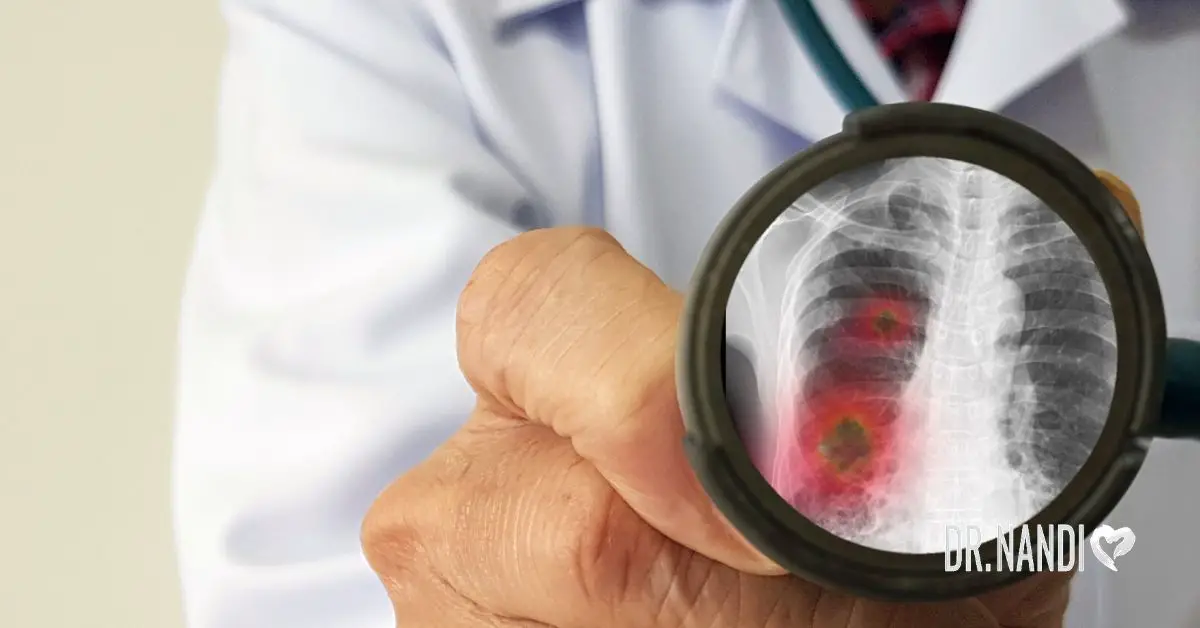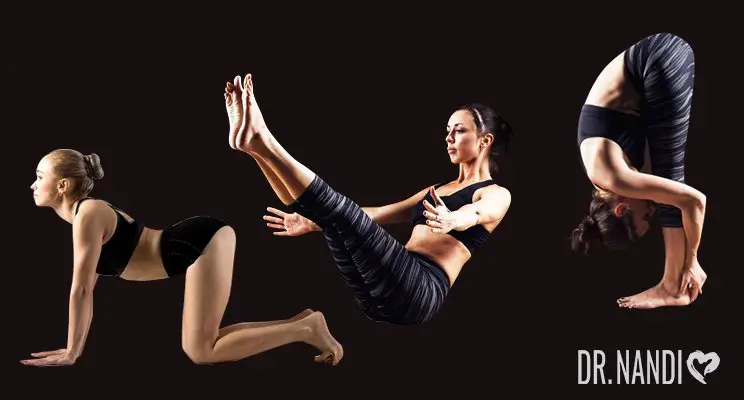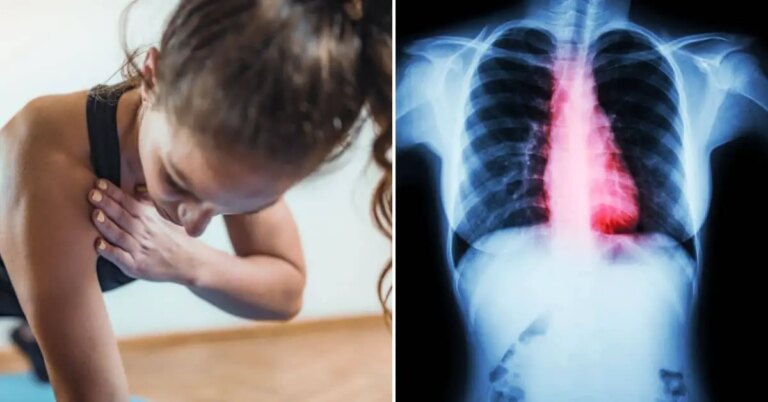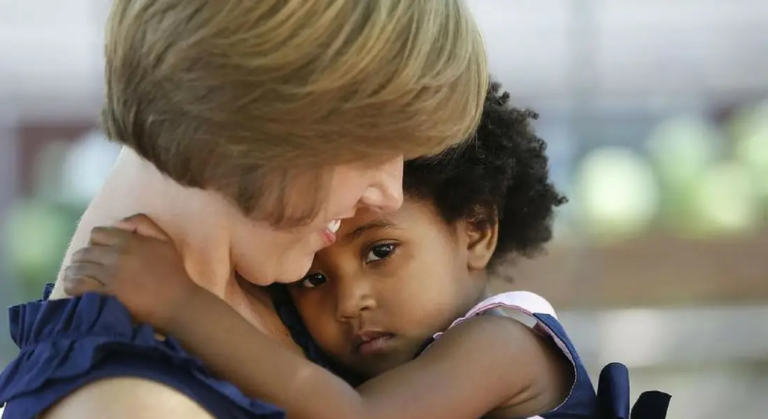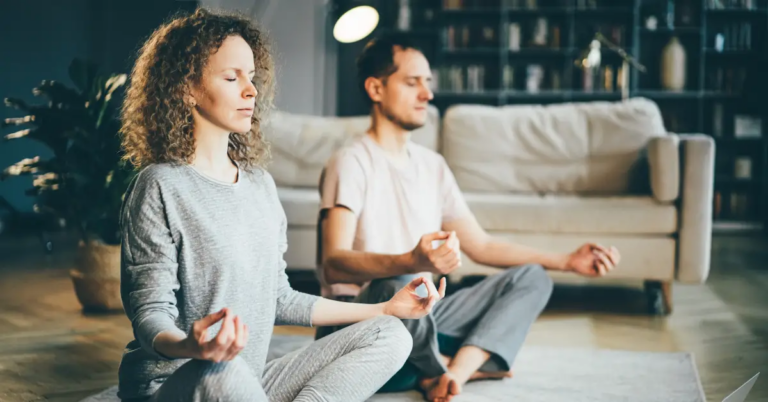The novel coronavirus has dominated new outlets throughout late 2019 and early 2020, but what do we know about this deadly virus? And what information is essential?
The New York Times called it an “infodemic” because so many stories have been written about Coronavirus. Many dangerous and false information about the new illness on the internet. Some of it is true, but a lot of it isn’t. To face wildly untrue claims, cast aside self-appointed experts, and prevent the erroneous transmission of information, a comprehensive overview of Coronavirus is required. Well-established experts within the scientific, medical, and public health communities are ultimately considered the best sources of knowledge in understanding this emerging viral strain. (1)
Virus Origin
The 2019 novel coronavirus, or COVID-19, is a relatively new infectious disease. Yet, the Coronavirus as a viral family is not unknown to scientists or the public. In 2002, severe acute respiratory syndrome coronavirus (SARS-CoV) spread to 37 countries globally, causing almost 800 deaths. SARS-CoV shook the world, prompting a massive reflection on public health policies, acute hospital resources, and infection control practices. Then, the Middle East respiratory syndrome coronavirus (MERS-CoV) spread in 2012 to 27 countries. So far, it has caused 858 deaths worldwide to date. Other strains of Coronavirus, beyond SARS-CoV and MERS-CoV, are often referred to as commonly circulating human coronaviruses. Overall, the family of coronaviruses shares a common structure and can present with similar symptoms. Still, each strain is markedly different as well. COVID-19 is the seventh member of the family of coronaviruses to infect humans. (2, 3)
Before SARS-CoV emerged, coronaviruses were considered more deadly to animals than humans, especially mammals. They had only been recorded as triggering gastrointestinal and respiratory infections among humans with diminished immunity. Pinpointing the exact origin of Coronavirus as a viral category is difficult. Still, several researchers believe bats are the natural incubators and agents behind numerous coronavirus strains, including SARS-CoV and MERS-CoV. Scientists have warned that Coronavirus has shown a remarkable ability to change, mutate, and create new strains. (4)
Coronavirus Timeline
- December 8, 2019 – Several cases of pneumonia of unknown origin are reported in Wuhan, Hubei province, China. Most of these cases arose out of the Wuhan district surrounding the Huanan Seafood Wholesale Market, where various live animals are sold.
- December 21, 2019 – Four lower respiratory tract samples are collected from patients with pneumonia of unknown origin.
- December 31, 2019 – The Chinese Center for Disease Control and Prevention (China CDC) dispatches a rapid response team to Wuhan to conduct an investigation. The unusual pneumonia cases were also reported to the World Health Organization (WHO).
- January 1, 2020 – In China, health officials shut down and cleaned up a seafood market after it was found that the place or the animals sold there may have been infected with a virus.
- January 5, 2020 – China announces that the unknown pneumonia cases in Wuhan are not SARS-CoV or MERS-CoV.
- January 7, 2020 – Chinese authorities confirm they have identified the virus as a novel coronavirus named COVID-19 by the WHO.
- January 11, 2020 – The Wuhan Municipal Health Commission announces the first death caused by COVID-19.
- January 13, 2020 – COVID-19 emerged outside China for the first time, affecting a Chinese national visiting Thailand.
- January 20, 2020 – The National Institutes of Health in the United States announces it is working on a vaccine against the novel Coronavirus.
- January 21, 2020 – Washington state confirms the first case of COVID-19 on U.S. soil.
- January 25, 2020 – Chinese New Year celebrations draw concerns for the transmission of nCoV-2019 as air and train traffic peak across China. The Beijing Culture and Tourism Bureau cancels all large-scale Lunar New Year celebrations.
- January 26, 2020 – The China Association of Travel Services reports that all international tours will be suspended until the COVID-19 resolution.
- January 31, 2020 – The Trump administration announced it would deny entry to foreign nationals who have traveled to China in the last 14 days.
- February 3, 2020 – China’s Foreign Ministry accuses the American government of reacting inappropriately to the outbreak.
- February 6, 2020 – Whistleblower Dr. Li Wenliang, credited with initially alerting the public about nCoV-2019, passed away from the virus. The number of confirmed COVID-19 cases globally is 28,275, with more than 28,000 in China. The virus has killed 565 people in China (one in the Philippines and one in Hong Kong).
- February 7, 2020 – Pangolins, ant-eating mammals often used in traditional Chinese medicine, were identified as a probable animal source of COVID-19.
- February 8, 2020 – First U.S. citizen dies from COVID-19.
- February 12, 2020 – Hundreds were quarantined on the Diamond Princess cruise ship at Yokohama, Japan.
- February 14, 2020 – First case reported in Africa, and France says its first death.
- February 18, 2020 – China’s daily infection figures drop below 2,000 for the first time since January.
- February 19, 2020 – Iran confirmed its first cases and death from COVID-19.
- February 21, 2020 – South Korea reports second death and at least 100 new cases.
- February 23, 2020 – Italy confirms third death, and several countries shut their borders to battle the spread of the virus.
- February 24, 2020 – Afghanistan, Bahrain, Kuwait, and Oman report the first cases of COVID-19. The seventh death was reported in Italy. A seventh death was reported in South Korea, and the number of cases sharply rose to 833. China’s death toll rose to 2,595 among 77,262 confirmed coronavirus cases.
- February 26, 2020 – Brazil, Georgia, Greece, North Macedonia, Norway, Pakistan, Romania, Greece, Georgia, and Pakistan, report their first cases of Coronavirus.
- February 27, 2020 – Denmark, Estonia, Northern Ireland, and the Netherlands report their first coronavirus cases.
- February 28, 2020 – More countries report cases of Coronavirus, and Italy remains an area of concern.
- February 29, 2020 – Travel restrictions were announced by the United States as the first death was reported.
- March 3, 2020 – The CDC lifted federal restrictions on testing in the United States. The WHO reports over 90,000 cases worldwide, including ~3,000 deaths.
- March 10, 2020 – Italy and Iran report their highest number of deaths every day.
- March 11, 2020 – The WHO declares the Coronavirus a pandemic. The United States enacted additional travel restrictions from continental Europe.
- March 13, 2020 – The United States declares the coronavirus pandemic a national emergency.
- March 15, 2020 – The CDC recommends gatherings of no more than 50 people.
- March 16, 2020 – New York orders bars, theaters, and cinemas to close as cases continue to rise in the United States.
- March 17, 2020 – France imposes a nationwide lockdown prohibiting gatherings and postponing elections. The E.U. bans most travelers for 30 days.
- March 19, 2020 – China reports no new domestic cases for the first time since the virus began to spread. Meanwhile, Italy reports the highest one-day death toll of any nation.
- March 21, 2020 – Europe is the epicenter of the outbreak, with Italy and Spain having the highest deaths. Hawaii’s governor institutes mandatory 14-day quarantine for anyone arriving in Hawaii.
- March 23, 2020 – U.N. chief calls for a global ceasefire to focus on fighting coronavirus. Britain goes into lockdown.
- March 24, 2020 – Olympics in Tokyo were delayed until 2021. India announces a 21-day lockdown.
- March 25, 2020 – The United States passed a $2 trillion stimulus deal to offset the economic damage of Coronavirus.
- March 26, 2020 – The total number of global coronavirus cases passes 500,000.
- March 27, 2020 – U.K. Prime Minister Boris Johnson announces he tested positive for the Coronavirus.
- March 29, 2020 – The United States has the highest coronavirus cases globally, with more than 124,000 cases and 2,000 deaths.
- March 30, 2020 – More states issue stay-at-home orders affecting 265 million Americans.
- March 31, 2020 – The United States surpasses China in the number of coronavirus-related deaths.
- April 2, 2020 – Global Coronavirus confirmed cases exceed 1 million. Millions of Americans lose their jobs with an unprecedented number of unemployment filings.
- April 3, 2020 – The CDC urges all Americans to wear masks when leaving their homes.
- April 5, 2020 – U.K. Prime Minister Boris Johnson was hospitalized for Coronavirus.
- April 7, 2020 – Japan declared an emergency, and Singapore began a partial lockdown.
- April 8, 2020 – The U.K. records the highest daily death toll; Wuhan begins allowing people to leave for the first time in 76 days since lockdown, and companies announce vaccine trials.
- April 9, 2020 – The number of cases in the U.S. exceeds 450,000, including over 15,000 deaths.
- April 10, 2020 – Global deaths exceed 101,000, with over 1.6 million people infected. The number of hospitalizations in Russia doubled from the previous week.
- April 12, 2020 – U.K. Minister Boris Johnson was released from the hospital.
- April 14, 2020 – Some European nations begin easing lockdown restrictions. Nigeria, France, and India extend lockdown dates.
(2, 3, 5, 6, 7, 8, 9, 10)
Transmission
Respiratory droplets spread the novel Coronavirus, often generated by sneezing or coughing. Anyone close to an infected person who breathes in these droplets may become infected. The CDC recommends keeping everyone at a social distance of at least six feet apart. COVID-19 is also thought to stay on hard surfaces for a few hours to a few days. To clean surfaces that have come into contact with someone who has the new Coronavirus, they should use simple disinfectants.
Health researchers are also looking into who is at the highest risk of becoming ill from the novel Coronavirus. Experts don’t know who is most likely to get sick from COVID-19. Despite this, they think that older people, especially men, and those who already have health problems (like heart disease and diabetes) are at the highest risk. However, we also see young; healthy people die from this disease. So, it should be heeded with extreme caution regardless of age or medical history.
People who get the new Coronavirus may not show any symptoms at all. It is a unique feature of the virus. The first COVID-19 patients began to show signs and symptoms of the illness between 1 to 14 days (with an average of 5 to 6 days) after contact with a known coronavirus source. People with COVID-19 may spread the disease even if they don’t show any symptoms. Someone who has symptoms will most likely pass it on to someone else. At this time, it is theorized that people are the most contagious when they are the most symptomatic or the sickest. (11, 12)
Signs and Symptoms
The main symptoms of COVID-19 are cough, fever, and shortness of breath. These symptoms typically appear 2-14 days after being exposed to the virus. If you have trouble breathing, pain or pressure in your chest, bluish lips or face, or new confusion, you should get medical help. Additionally, as we learn more about this virus, other symptoms have been reported, such as gastrointestinal issues, including diarrhea.
However, seek medical help if you suspect you have contracted any severe illness, regardless of the cause. (5, 11, 13)
Diagnosis
Determining who has and doesn’t have novel coronavirus has been done largely using polymerase chain reaction testing (PCR), an artificial DNA replication technique. Using PCR, the viral components of COVID-19 have been identified among patients and confirmed as the shared source of illness. Samples for PCR testing are currently obtained via swabs of the upper respiratory tract (from the throat or nose), but this may change as researchers about the Novel Coronavirus understand more. Like the flu and respiratory syncytial virus, other respiratory viruses are currently tested similarly. It’s important to note most people who contract the virus will have mild symptoms and can recover at home. While the CDC provides guidelines for testing, these decisions are left to the discretion of state and local health departments and individual clinicians. (5, 14)
Treatments
As COVID-19 is a new disease, there is currently no medicine to prevent or treat it. Any claims on the internet for a medication to prevent or treat COVID-19 are false. Additionally, because COVID-19 is a virus and not a bacteria, antibiotics cannot treat this infectious disease either. There are, however, treatments that can help people who are sick with COVID-19 feel better and keep their illness from getting worse. For instance, severely ill patients with COVID-19 may have their breathing supported with oxygen, a breathing tube, and a mechanical ventilator within an acute care setting.
Although there is no treatment for COVID-19, that doesn’t mean there will never be. Researchers are hard at work investigating potential therapies through clinical trials. There are also 70 vaccines in development, three of which are in the human trials stage. WHO and the National Institutes of Health work together on some projects to find new ways to treat COVID-19. (11)
Protecting Yourself
The best way to prevent the transmission of any illness is to practice good hand and respiratory hygiene. Regularly wash your hands with soap and water for at least 20 seconds, or use an alcohol-based hand rub if a sink is unavailable. Cover your mouth and nose when coughing or sneezing, and avoid touching your face regularly. Cough into a sleeve or material-based surface instead of your hands. A mask may help limit illness transmission but is not a guaranteed method to protect yourself. And, with a shortage of protective equipment for healthcare workers, it’s recommended that you leave N95 masks for the healthcare professionals. Homemade masks can help prevent you from spreading the disease by catching respiratory droplets if you are asymptomatic and unknowingly carrying the disease. If you feel ill, please self-isolate at home and do not change infecting others.
Suppose you find yourself in a public setting in the next few months. In that case, it’s best to keep a social distance (2 meters or 6 feet), avoid those feeling unwell, and diminish contact with undercooked meats.
If you develop a fever, cough, or trouble breathing, stay home and consider seeking medical care. Medical care is critical if you have had contact with someone traveling abroad or known to have Coronavirus. Several illnesses can cause respiratory symptoms, and COVID-19 could be one of them. (11, 12)
It’s also essential to take care of your mental health. Take periodic breaks from the news to give your mind a reprieve from the stress and anxiety caused by the pandemic. While we’re all practicing social distancing for our health, it should be considered ‘physical distancing.’ Keep in contact with your friends and family at a safe distance, and reach out for support if you need it. Make sure you eat well, get enough sleep, exercise regularly, and use stress-relieving practices like meditation, yoga, reading, strolling, and pet play.
Risk Assessment And Monitoring
Looking at the situation in the United States, there has been a spread of novel Coronavirus from person to person. These cases initially occurred between travelers from Wuhan and close family or friends. The situation has escalated into a global pandemic and spread through communities worldwide. The potential public health threat posed by the COVID-19 virus has been assessed as high globally and in the United States. As the virus spreads throughout the United States, more states enact ‘shelter-in-place’ ordinances. The goal is not to prevent the spread of the Coronavirus – we are well beyond that possibility. The goal, instead, is to slow the spread of the virus so that healthcare workers can treat patients who require hospitalization. If everyone gets the disease all at once, it will overwhelm the healthcare system. So, instead, and you may have heard this term, the goal is to ‘flatten the curve’ or spread the rate of infections over a longer period.
What Precautions are Being Taken?
The U.S. federal government works closely with state, local, and global partners to produce a multi-layered response to this public health threat. Front line healthcare workers like nurses and doctors are being informed on how to protect themselves best and other patients from Coronavirus. Travel officials have taken the unprecedented action of suspending foreign nationals who have visited China within the past 14 days from entering the country. Measures to detect this virus among those allowed entry into the United States (U.S. citizens, residents, and family) who have been in China within 14 days are also being implemented. All of these interventions combined are helping to lower the risk to the American public.
It’s also worth noting The Centers for Disease Control and Prevention (CDC) is an important force within the American novel coronavirus response effort. The CDC published clinical guidelines for COVID-19 patients, established PCR tests for COVID-19 diagnosis on American soil, and sequenced and uploaded the whole viral genome of COVID-19 cases to GenBank. Furthermore, the CDC has grown a viral cell culture of COVID-19, which will be necessary for future research and genetic testing of the virus. (15)
Want To Know More About Coronavirus?
Keeping yourself and your family safe from COVID-19 can feel incredibly challenging as more information about this infectious disease seems to be released daily. I encourage you to stay tuned to our website for the latest updates on the novel Coronavirus and refer to the WHO website as a supplement. The WHO is the foremost global expert on COVID-19. Referring to their website will ensure you accurately understand this new infectious disease. Check out the entire WHO news center for COVID-19 by clicking here. So please, stay home, stay safe, and wash your hands!
Covid 19 Q & A From the Facebook Live
Q: Will Warm Weather Help Slow the Virus?
I get asked a lot, and I’m sure many of you are also thinking about this warm weather? Are we going to be out of the woods if we get warmer weather? Well, here’s the thing. We think that most Coronavirus have a cyclical kind of pattern, meaning worse in the winter and better in the warmer months. Let’s think about the flu, for example. The flu in the cold, we know that you get worsening in the winter months, but it seems to go away in the spring and summer.
There are a lot of theories about why. Is it because there’s sunlight? And some people have looked at U.V. rays killing the virus. Does your vitamin D level go up in these colder climates where you have sun? Whatever the case is, we see the sobering news that China doesn’t support the idea of warmer weather killing or slowing the virus. The Coronavirus transmission did not change in cities with higher temperatures and humidity.
So it doesn’t mean that it’s not going to get better. I see that it doesn’t seem like you will look at countries with warmer temperatures like Iran, right? Iran had warmer temperatures but hit super hard. Anybody who lives in Australia, any of my folks in Australia, will tell you that it is also a place where it’s warmer, and they were hit as well. So it doesn’t mean that the warmer temperature will be a savior for all of us. It may be, and I’m hopeful it is. The bottom line is that it’s premature to think that the warmer temperatures will be everything to control COVID until we get better treatment, effective treatment.
Q: Do we have effective treatments for Covid19?
I know there are some treatments out there, people. I’ve talked about hydroxychloroquine and erythromycin. There are all kinds of medicines out there. We don’t have great treatment trials yet, and we don’t have vaccines. Those things would be great until we have social distancing, appropriate disinfecting, and washing your hands with soap and water. I’ll talk to you about this again and again. Still, I also really recommend that because we’re at home, it doesn’t mean that we stop our Health Hero methodologies, right?
Q: How should I eat, sleep, and exercise during the pandemic?
The topic of this live stream is Health Heroes Solutions for the Coronavirus or the Coronavirus pandemic. That means eating appropriately. It doesn’t mean eating pizza every single day. Hey, you want to have pizza once in a while? It’s okay. But you don’t want to eat a bunch of crap every day; take out every day. It’s not going to help the virus. Also, something I’ve struggled with my whole life is getting adequate sleep; six to eight hours of sleep will be tremendous for you.
Go out there and please exercise, do something, right? Get out there and move with purpose. It doesn’t mean you can’t receive some natural fresh air and sunshine and walk outside because you’re quarantined in your house and isolated with your family. That doesn’t mean you have to stop doing it? Get a proper diet and sleep.
Q: Masks: “So masks are only recommended,” somebody says, “when we leave the house, right?”
Listen, you can wear masks all the time if you want, but you want to avoid not having a mask if you’re out in public, right, with groups of people. So you want to make sure that you use that precaution to wear a mask. If you’re going to wear it everywhere, it’s not going to hurt you. But typically, I would say if you’re in public places is where you want to wear masks. If you’re going to wear masks at home, go for it, it is not hurt you. But I think you want to do this in places where you feel like you’re in public places where you can make sure that you’re not compromising your health.
Q: What should we do in regards to Hand Sanitizer?
In the poison center in Michigan, I heard that people are getting calls for accidental misuse of hand sanitizer; tragic. So what some people are doing is consuming hand sanitizer, right? Drinking hand sanitizer or rubbing alcohol is dangerous, right? Dangerous. They’re poisonous, and you can end up hospitalized and die. So also, there are people who can’t find hand sanitizer and are using dangerous products instead. Like I’m talking about paint thinner, I’m talking about windshield washer fluid, lighter fluid, chafing fluid—important note to do this.
There’ve even been reports of people drinking antifreeze, which is super dangerous. Please don’t consume or use these products for your hand. You could have hazardous effects on your skin, eyes, mouth, throat, and stomach. And the best way to get rid of germs is to guess what? Wash your hands, right? Wash your hands with soap and water. Important. Suppose you want to make your hand sanitizer if you can have a two-thirds cup of rubbing alcohol and a third cup of Aloe vera. In that case, you can drop a few drops of essential oil to make it smell nice; you can do that.
Q: Should I wear glasses instead of contacts?
You may have heard this as well. The American Academy of Ophthalmology provided some tips. It is recommended that you wear glasses instead of contact lenses during this pandemic. And that’s because you’re less likely to rub or touch your eyes as much as anybody’s worn contact lenses, I have, be like rubbing in and doing all this stuff, right? So you want to be able to protect your eyes. So if you have glasses, you’re likely not going to rub your eyes as much. And they can also help you protect your eyes from respiratory droplets that contain the Coronavirus.
However, if you want to wash your contact lenses, you don’t have to wear them. Instead, you make sure that you wash your hands with soap and water for 20 seconds before taking them out. So you don’t just want to take your hands without washing them; take your contact lens out. But the bottom line is if you can wear your glasses during this time.
Q: Health Hero Pillar: Tribe & Community, Staying Connected During the Pandemic
If anybody’s known about my Health Hero principles, one of my biggest pillars I call his tribe or community. And it’s never been a better time to get acquainted with your tribe and your community. My family is my most prominent tribe and community, and I’ve been blessed to get close to them. And a lot of my friends have said the same thing. If you don’t have an immediate family, please reach out via electronics, FaceTime, etc. If you have a Facebook group with whom you need to do, reach out.
If you have a neighbor, you guys can reach out with some boundaries, right? You can be 50 or 100 feet away and still talk to each other and get acquainted. It’s essential at this time because we need our mental health. Super important to talk about that.
Q: What Should I do about Takeout Food?
I’d like to support local restaurants, but you never know who’s preparing your food. Absolutely. Listen, if you can cook at home, you can, but I think you can safely still get takeout. Ensure that you take the food out of the packaging and wash your hands with soap and water. Important to do that. But it doesn’t mean that you’re lost. Some people still want to take it out; you can do that safely. Remember, all these restaurants do everything because they don’t want to get sick. Secondly, they want to protect the community. I’m just so proud of everything that our communities are doing to safeguard the entire community’s health.
Q: Can Stress Exacerbate Covid Symptoms?
Yes, stress can exacerbate any symptom that you have. That’s why it’s so crucial at this time not to freak out absolutely. I think it’s super important to be concerned and take everything seriously. But to freak out is not going to help, right? It is how it is. So when you have stress, what happens? When you have anxiety, your body’s immune system doesn’t function, especially if it’s stress on a chronic basis. If you are stressed, you don’t sleep well. Your cortisol level goes up and out of control if you are stressed. If you have high levels of cortisol that don’t go down, your whole body doesn’t work well. Not just your immune system but every part of your body.
Remember, there are 330 million Americans. There are billions of people worldwide, and several million and millions of people have chronic diseases. So let’s say even if 10% of people have chronic conditions, even let’s say we don’t even think about the Coronavirus pandemic. What about the rest of your disease states like diabetes? Let’s say you have an autoimmune disease. All those can get worse with stress, and all those can put you at increased risk for Coronavirus. So, pressure is significant to try to manage.
And so, how do you do that? One of my favorite things to do is move around with a purpose. You can do this by getting outside and moving around, walking, biking, or even running inside if that’s what you want to do. And also, if you are very religious, then prayer at this time is super important. If you’re not religious, yoga and meditation bring down your stress level. Super important. One of the most important things I’ve ever done is start meditation. You can do a Tai Chi, walk in the garden, whatever it takes. So you know that you’re part of a supportive environment, that helps, really helps.
Q: If you’ve had Covid19, can you be a carrier?
Great question. So we’re looking at that kind of information, right? So the best example is hepatitis B. So once you’ve had it, you can be. Some people can be a carrier. So we don’t know that yet, or we don’t know about the carrier state. We’re trying to get the antibody testing formalized and getting it widespread. So what do I mean by that? One of the first things your body does when it gets infected is to make an IgM antibody; a “knock them dead” antibody. But that is followed by IgG, and that’s your longer-term protection. So we’ve got to find out if there are people who are not going to be symptomatic that continue to be PCR positive, which means they show evidence of the infection. So we have to find that out. I guess that that’s not going to be the case, but we have to find out.
Q: Where did this all get started?
As far as we can tell in Wuhan, China, right? It got started at the live seafood market, and it tells you how infectious this is. It is almost three times as infectious as influenza, and people don’t have any immunity to the COVID-19. So once it finds a susceptible host, it spreads very quickly, three times, three times as quickly. And so once you get it to one person, they can infect three.
If you know how to do math logarithmically, one person can infect three to the power of three. It just keeps going that way. So it means that one person doesn’t just infect one person and infects three. So with worldwide travel the way it is, people traveled everywhere before we recognized what the infection was, right? And then you had those cruise ships that came with tons of infected people. Some went out in public. You remember that we flew many infected people and folks that were not infected in a plane, in a 747, and they came out. So there are so many reasons for this to be spreading.
And then, once it went to Europe and we were traveling from Europe to the U.S., we have some evidence that many of the cases in New York were from Europe. But we feel that the epicenter was in Wuhan, China, and it spread worldwide. Right now, we have it, and this is one of the cases where the entire world, it’s amazing, is galvanized. They forgot all of their differences and said, “We are in it to win it. We are going to conquer this.” And I’m so proud.
Q: Should I postpone my non-emergency doctor visits?
I think most doctors are postponing non-emergency visits because this is one way we’re fighting the virus. To not have a congregation of people in one place like in waiting rooms, like in doctor’s offices. Now here’s the thing, lots of doctors and you can ask your doctor are doing telemedicine. I’m doing telemedicine. We’re talking to patients, interacting with them visually, audio, audio-visually, looking at the records, and making recommendations. I can refill my medication from the computer, and your doctor should be able to. So, please ask your doctor. Number one, are they doing telemedicine now? All of the cares like Medicare, Blue Cross, and others they’re allowing telephone visits as well.
So you may be able to talk to your doctor via the telephone or via FaceTime to do that. All of the insurance companies have been allowed to do that. So absolutely, you should not let your irregular medical conditions suffer during this time.
Q: When I wear a mask, my glasses fog up; what should I do?
So what you want to do is make sure that you have a good fit on your nose with the mask. The masks have two ends, right? The one for your nose, and you can squeeze it, so it’s nice and tight. When air doesn’t escape, it helps not to fog it up. So what you want to do is, if you have a homemade mask, make sure you have a nice tight fit right where your nose is. And test it out before you go out in public. Many of us say, “Okay, we’re in a hurry.” We’re always in a hurry. We’re always, “We’re going to go, go, go.” Go to the grocery store or the pharmacy or wherever we go, go, go. And then we don’t test the mask, and we’re adjusting it in the store.
Adjusting it so all the stuff that’s coming in from the outside, you’re touching it with your hands, face, and nose, whatever you do. You don’t want to manipulate your mask. If you’re going to practice that stuff at home in a safe environment, you want to mess with that stuff.
Q: What are people with compromised immune systems supposed to do that work in the essential fast food industry?
People who are immunocompromised are at increased risk. So no doubt about that, right? But as long as you’re not symptomatic, you can still safely work. Make sure you follow the precautions. Wear a mask if you’re getting in contact with folks, and make sure you practice social distancing. If you’re in the fast-food industry, maybe the drive-through window or where you’re dropping off people are picking up food is not the place for you. Maybe it’s in the back where you’re preparing food. We’ve got to adjust ourselves. But this time, you can safely work in the fast-food industry or the grocery industry; make sure you protect yourself. So I tell my patients who are taking medicines like infliximab or Remicade that have an autoimmune disease, I still tell them you can work safely. Just make sure you take precautions.
Q: Hand Washing and Handling Groceries.
Wash your hands for 20 seconds several times per day. We bring the groceries in. We have a designated area where we bring up groceries, take them out of the packages, and wash our hands. That’s how you do it. Get the mail, get packages from FedEx, UPS, whatever, right? You’re getting deliveries from Amazon; wash your hands, wash your hands. Listen, I think that was good advice even after the pandemic. I hope people don’t forget that you can still wash your hands after the pendant. Significant stuff.
Q: Is it safe to take Ibruprofen with the Coronavirus?
A question came up about Advil and ibuprofen. As far as we can tell right now, there’s no definite evidence that taking ibuprofen short-term will make the virus live more. I repeat, taking ibuprofen like Advil will not make the virus worsen your body in the short term. If you take it for a long term, then continue to take it every day; it may be a different story. But not just for the Coronavirus but for the rest of your body. It can affect your kidneys; it can affect your G.I. system. But for now, I think you can take Advil if you need to for the short term.
Q: I have a severe toothache. What should I do?
If you can take Tylenol, that’d be great. If you can see a dentist, I would. Because if you have a tooth abscess, that’s an emergency, right? You don’t want to die from some infection because you’re worried about the Coronavirus, right? So I’m not saying you should get your teeth cleaned for your regular visit. No. Your six months stuff, I’ve got to get my teeth cleaned. Somebody wants to get their cleaning. That’s not what I’m talking about, right? That’s not what I’m talking about. We’re talking about emergencies and urgent situations.
So we’re talking about emergencies when you have situations that could kill you. So if your appendix is bursting, but you’re worried about getting the COVID, you don’t want to die from your appendix bursting and getting sepsis, right? It is the point. You don’t want to sit there and have a real problem kill you to prevent yourself from getting a potential problem. COVID isn’t a severe problem. But if you have a serious issue, this is important to understand.
Suppose you have a tumor that could potentially be life-changing, life-altering, and cause death. In that case, you don’t want to sit there and say, “I’m not going to see anybody because I’m worried about COVID.” Because you have a real problem, Ali, see your dentist if you feel like your toothache is severe. They’ll make sure that they protect themselves and protect you. Listen, all the patients that are having elective procedures from me, things like they have a colonoscopy because they’re 60 years of age. They’ve had polyps before; we’re not doing those.
However, if you have diarrhea to the point where you’re wearing adult diapers, if you’re bleeding, I’m going to see you, and I want to take care of you, and I have been, right? We do those procedures to help folks be able not to have something change their lives. Because for the next six weeks, we could be doing what we’re doing now. I don’t want folks to suffer and have adverse consequences, possibly losing their lives because they’re worried about COVID. You should be concerned, but you should not ignore urgent and necessary problems to be taken care of.
Sources:
- https://www.nytimes.com/2020/02/06/health/coronavirus-misinformation-social-media.html
- https://www.thelancet.com/journals/lancet/article/PIIS0140-6736(20)30260-9/fulltext
- https://www.nejm.org/doi/full/10.1056/NEJMoa2001017
- https://www.msi.umn.edu/~lifang/otherflpapers/coronavirus-review-nrmicro-2018.pdf
- https://www.thelancet.com/journals/lancet/article/PIIS0140-6736(20)30211-7/fulltext
- https://www.cnn.com/2020/02/06/asia/li-wenliang-coronavirus-whistleblower-doctor-dies-intl/index.html
- https://www.nature.com/articles/d41586-020-00364-2
- https://www.cnn.com/2020/02/06/health/wuhan-coronavirus-timeline-fast-facts/index.html
- https://www.aljazeera.com/news/2020/01/timeline-china-coronavirus-spread-200126061554884.html
- https://www.nytimes.com/article/coronavirus-timeline.html
- https://www.who.int/news-room/q-a-detail/q-a-coronaviruses
- https://www.who.int/emergencies/diseases/novel-coronavirus-2019/advice-for-public
- https://www.medicalnewstoday.com/articles/5161.php#differences
- https://www.cdc.gov/coronavirus/2019-ncov/symptoms-testing/index.html
- https://www.cdc.gov/coronavirus/2019-ncov/summary.html



